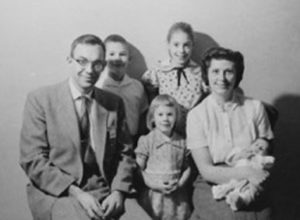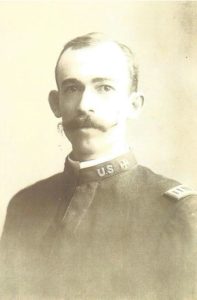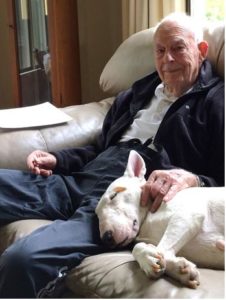The story of one’s man impact on multiple generations

Supper wasn’t a hurried affair when Malcolm Burnett was growing up in the small town of Camas, Washington. It was a family time—a time for the adults to talk and the children to listen and keep quiet. Suppertime conversations at the Burnett family table revolved around current affairs and the family’s history, and Malcolm was an avid listener.
Sitting around the table one evening in the 1930s, Malcolm’s paternal grandfather, Dr. Charles Flagg, shared a story that made a lasting impression on his junior-high-aged grandson. After serving in the Philippines as a US Army surgeon during the Spanish American War and the subsequent occupation, Dr. Flagg was sent back home to Fort Vancouver in Vancouver, WA. Owing to the servicemen’s patronage of the houses of prostitution in the area around Fort Vancouver, the job of examining, treating, and keeping medical records for prostituted women fell to the Army medical corps. Dr. Flagg treated many of the prostituted women during his time at Fort Vancouver, and observed troubling trends in their health.

Malcolm, now his nineties, still remembers the shock he felt when Dr. Flagg said that the average life expectancy of the girls after they were prostituted was 7 years because of the diseases they would contract.
“Syphilis and gonorrhea were very common. In those days syphilis was treated with mercury, if my memory serves me right,” Malcolm mused sadly from the couch in his sitting room. “These things weren’t publicized in the papers, but the military knew what was going on.”
Dr. Flagg went on to tell the story of a middle class family whose daughter had disappeared. “Her brother went to a house of prostitution in Vancouver,” Malcolm recalled Dr. Flagg’s story, “I don’t know if he was going in search of his sister, or if he was a patron, but when the madam showed him to a room on the second floor, his sister opened the door! He and his sister tied the bedsheets together, escaped out the window, and made it safely back to their parents’ house.”
Dr. Flagg described prostitution as a “vicious heartless business,” and his stories made an indelible impression on Malcolm, who has held a firm, lifelong belief that “sexual exploitation through prostitution should not be winked at and kept hush-hush, but should be fought like any other crime.”
[easy-tweet tweet=”“Sexual exploitation through prostitution should not be winked at, but fought like any other crime.”” user=”SharedHope”]
“When you combine this history with the fact that I have four daughters, four granddaughters, and three great-granddaughters in my family, you can see why I support the work done by Linda Smith and Shared Hope International to eradicate this vicious, heartless business worldwide!” Malcom added, “Because I grew up with a strong feeling about people who make money on prostitution, we wanted to get behind her work.”
“When I worked for Boeing, I knew men who patronized prostitutes. It’s sickening how our culture accepts it.”

Malcom determined at a young age to make a difference and to save girls from that life. He stays involved today by sharing the message of awareness with his family, friends, and church community. He continues to support Shared Hope in any way he can. He is particularly grieved by the way our society views prostitution as normal.
A few years ago, Malcom and Linda met over lunch to discuss several bills then being considered by Washington State to strengthen laws to prosecute those who buy and sell children. He leaned across the table and said passionately, “I may be 92, but I’m not dead yet! What do you need me to do?”
Malcolm joined the forces of letter writing activists to convince state lawmakers it was the right thing to do, saying, “If everyone did something, we could get it done!” As a result of those efforts, Washington state is one of 7 states who currently hold an A grade in Shared Hope’s Protected Innocence Challenge.
Malcolm Burnett life is a powerful example of individual responsibility, active citizenship, and compassion. In passing these values on to his children, grandchildren, and great-grandchildren–and in the difference he has made through his contributions in the lives of those served through Linda Smith and Shared Hope’s work–Malcolm has created a living legacy.
Note: Nick Lembo is the original interviewer and author of this piece. It was modified by Jennifer Lindsay for use on the Shared Hope Blog.






